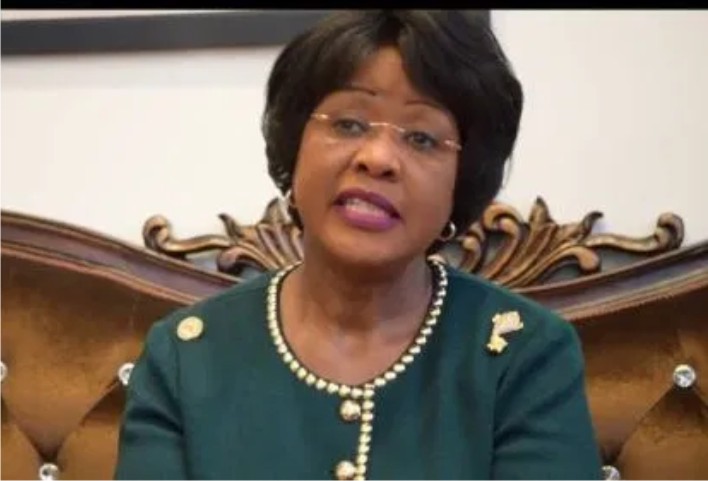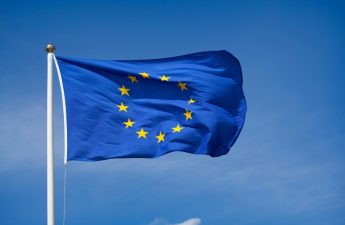In lieu of its African conference hitherto billed to hold in Freetown April, the African Women Leadership Organisation, AWLO, convened a 3-hour Zoom conference with attendees from five continents including HE Fatima Maada Bio, the First Lady of Sierra Leone and would-have-been hostess. Meanwhile, WW caught up with the special guest of honour, HE Arikana Chihombori Quao, MD, the former African Union ambassador to the United States who gave attendees a dose of her usual frankness. Excerpts:-
Can you say a thing or two about Africa that you want?
You have to understand that this is a journey that was started by our pan-African fathers back in 1963 when they met in Addis Ababa at the initiation of Emperor Haille Selassie. They came to Addis as the Casablanca Group who believed that Africa was for Africans and is the African Union now. They understood that the boundaries that were imposed upon us at the Berlin Congress were a major stumbling block to Africa’s progress. The Berlin Conference made it difficult for the tiny little African economies to trade with each other. It was easier to trade with the Europeans, the Chinese – everybody else except our neighbours who are our own brothers and sisters so it was intentional. The Berlin Conference intentionally put up these boundaries in order to see Africa not move forward as a United continent which is really ultimately what we need if we are to survive.
What are the issues we need to thrash out between us?
We need to talk about what we would like to see and work towards achieving that. We need an African Central Bank; an African stock market; we need an African monetary policy and an African single currency. We need a single military.
Is this not far fetched? How achievable is this?
These are all aspirational at this time but we can work with what our heads of state have managed to accomplish which was the completion of the unfinished business which was started by our pan-African fathers back in 1963 which is the establishment of the African Continental Free Trade Area in 2018.
The African Continental Free Trade Area is addressing the issue because when we start trading with each other and eliminate stumbling blocks that have been keeping us from trading with each other; when we eliminate the borders so that one can get up in the morning from Johannesburg South Africa and drive all the way to Cairo in Egypt, that is true liberation.
What are the implications of this as far as a small business is concerned?
A woman can get up in the morning with her products from Lusaka Zambia and hop on a high-speed train to Kinshasa, sell her products, and by evening she’s back home for dinner, that is what we are talking about. When all the borders are open the children of Africa are free to move around, establish wherever they wish on the continent. That is exactly what Africa needs.
We must understand that we have been brainwashed; that we are a wounded people, we have been abused and beaten up so much we are suffering from Post Traumatic Stress Disorder or we could call it the “Battered Wife Syndrome “ where we have been beaten up so much that even when the most outrageous things are being done to us we just take it and keep moving.
We have almost lost the ability to fight and push back at every level. We must be completely in charge of our economies
You are talking about fully independent, sovereign countries here…
Sadly when the different African countries were getting their independence between the late 1950s and early 60s, we only received our political independence; we did not receive our economic independence. The colonisers kept that. In the African countries today majority of the big companies that are employing the citizens are based in former colonies so if you were formally colonised by the British you find that the majority of big companies in that country are headquartered in Britain. If you were a French colony the majority is headquartered in France and so forth. Portuguese, Italian, and Belgium being the major ones.
How can Africans in the diaspora work closely with young leaders in Africa?
If you take a young man for example who needs 500 bucks. For $500 you can buy a small table, an umbrella, a set of sim cards and you can start a business selling sim cards.
You can look at a woman who would like to see. Now we are looking at African seamstresses sewing our own COVID supplies. The woman who can buy a sewing machine for $300 and the other $200 to buy their first fabric. They can start a business. African women, youth- they are so enterprising.
A little bit of money that we take as a pocket change in the developed world is a lot of money that can go a long way in Africa. We want to come home and be prepared in building the Africa that we want.
For generations, we have experienced what the majority of the content refers to as corruption. Is there consciousness in the leadership?
Talking about the African leaders and issues in Africa as if it’s one problem and one gigantic country- we are not there yet. We have to realise that we have 55 African leaders and to refer to all of them and paint them with one brush is not fair. If we want to talk about a specific issue, about a country let’s talk about that country but to just blanket all African leaders and say they do not awake, that is not true. It is a work in progress. Keep in mind, a leader is as good as the people around him.
That is why we too must make an extra effort to make sure that we stand up, we continue to be the voices; we continue to respectfully talk to our leaders and let us know where we stand on specific issues. The challenges in Africa vary from one country to the other. This is a process. You have to understand that Africa is a family.
You are so big on free African trade. What do you have to say to someone like President Buhari who has shut up the land borders?
This is the wrong time to be talking about locked borders. The borders have to remain shut because of the coronavirus pandemic crisis and I am sure that when the crisis is over, President Buhari will open up the borders.



